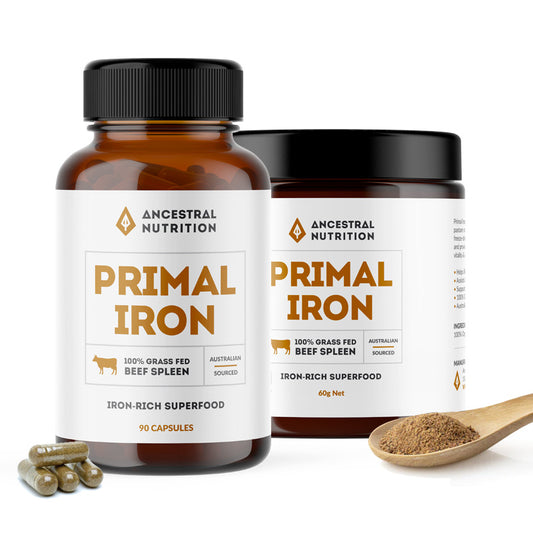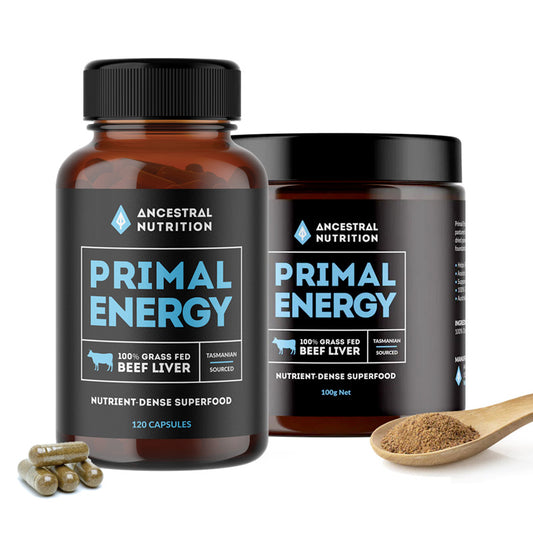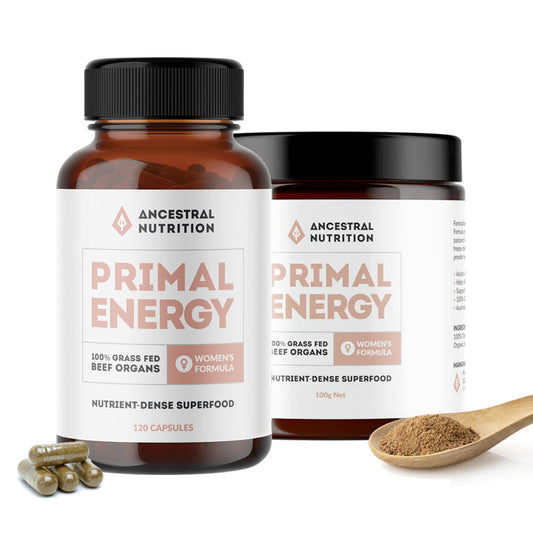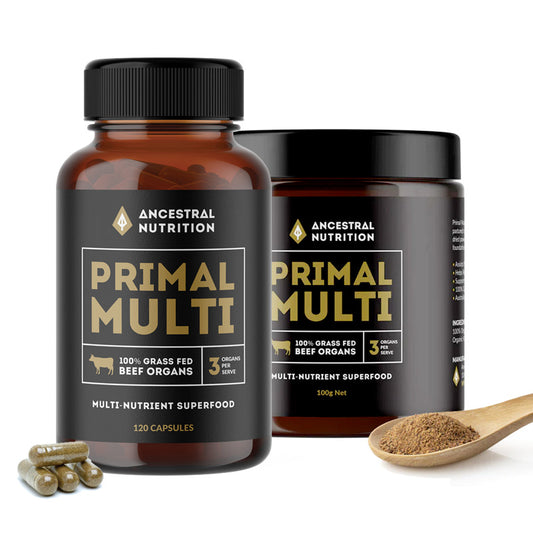Liver & Vitamin A: Nutrient Information for Expectant Mothers
article by Ancestral Nutrition

The information below is educational only and is not intended to diagnose, treat, cure, or prevent any condition. Vitamin A needs can vary considerably during pregnancy and breastfeeding. Always discuss your individual diet and supplement plan with a qualified healthcare professional.
Why Vitamin A Matters
Vitamin A contributes to normal vision, immune-system function and healthy cell growth. It is available as:
- Retinol (pre-formed vitamin A) – found in animal foods such as liver, eggs and dairy.
- Carotenoids (e.g., β-carotene) – plant pigments that the body can convert to vitamin A, though conversion efficiency varies between individuals.
Australian Reference Intakes (NHMRC)
| Life stage | Suggested dietary target (µg RAE / day)* | Upper level of intake (µg RAE / day) |
| Pregnancy | 800 – 1000 | 3000 |
| Breastfeeding | 1100 - 1200 | 3000 |
| * RAE = retinol-activity equivalents |
Beef Liver as a Food Source (Fresh)
Fresh beef liver contains naturally occurring retinol in a food matrix that also provides nutrients such as iron, B-vitamins and copper which can deliver a meaningful amount of vitamin A, but portion size should be considered alongside total dietary intake.
Freeze-Dried Beef-Organ Capsules
For those who prefer a convenient whole-food format, our grass-fed, freeze-dried organ capsules supply vitamin A together with other naturally occurring nutrients. Typical vitamin A content (per serve*):
| Product | Retinol (µg) per serve |
| Primal Energy - beef liver capsules | 240 µg |
| Primal Energy – Women’s Formula | 156 µg |
| Primal Multi | 82 µg |
| Primal Iron | 0 µg |
*One serve = 2-4 capsules (as directed on label)
- All products are made from 100 % grass-fed, grass-finished Tasmanian cattle.
- Freeze-dried to help preserve heat-sensitive nutrients.
- Free from added hormones, antibiotics and GMOs.
Always read the label and follow the directions for use. Supplements should not replace a balanced diet. If you are pregnant, planning pregnancy, or breastfeeding, seek advice from a qualified healthcare professional before using vitamin A–containing products.
By understanding the vitamin A content of both whole foods and supplements—and consulting your health-care provider—you can tailor your intake to meet Australian guidelines while enjoying the nutrient diversity that traditional foods such as beef liver provide.




